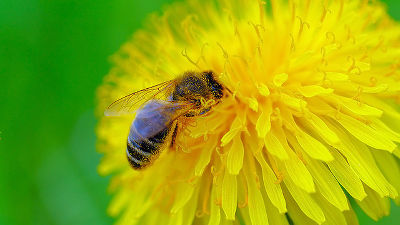How do ants sort their work efficiently?

Ants are insects that have a
Social influence and interaction bias can drive emergent behavioral specialization and modular social networks across systems | Journal of The Royal Society Interface
https://royalsocietypublishing.org/doi/10.1098/rsif.2019.0564
Divided, we fall: How ant behavior mimics political polarization | Ars Technica
https://arstechnica.com/science/2020/02/divided-we-fall-how-ant-behavior-mimics-political-polarization/
Worker ants can be broadly divided into two types: ants who work proactively and ants who work by being influenced by their surroundings. Ants who work proactively tend to choose a job according to their own desires, engaging in foraging when hungry, and raising children when interested in larvae. 'Ant who works by being influenced by the surroundings' works by mimicking the actions of other workers.
The following figure shows the division of labor of an ant group in which 'ants who work proactively' and 'ants who work by being influenced by their surroundings' coexist. For example, when searching for food is “Task A (blue)” and raising a child is “Task B (red)”, the darker the color, the longer the same job. The ants who work proactively affect their surroundings, causing the division of labor to take place naturally over time, forming two groups: ants for foraging and ants for raising children. This phenomenon has contributed to the efficiency of ant group life.

The following figure shows a group of only ants who work on the initiative (social influence only) and a group of ants who work on being influenced by the surroundings (interaction bias only). ), And shows the results of observing how division of labor is performed.
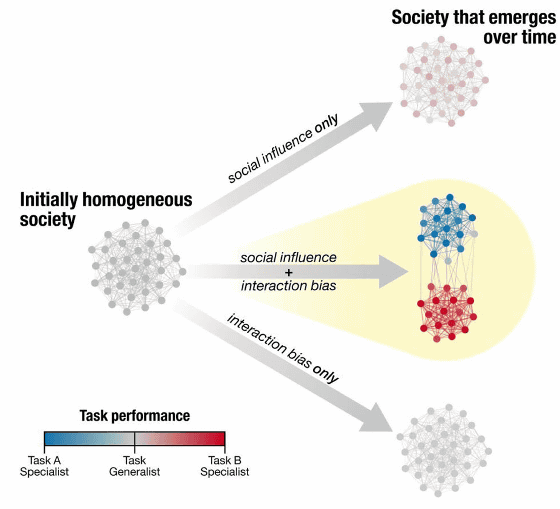
In the group of 'ants who work proactively' only, the ants changed jobs frequently according to their own needs, so there was no division of labor, and there was no one job for a long time.
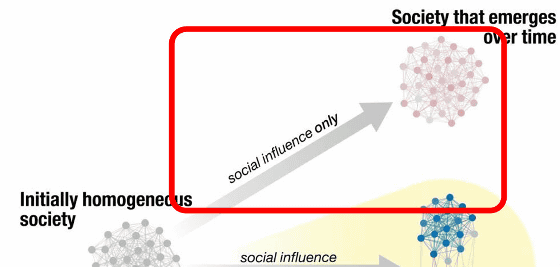
Also, in the group of “ants who work by being influenced by their surroundings” alone, division of labor did not occur because ants did not take the initiative in the first place.
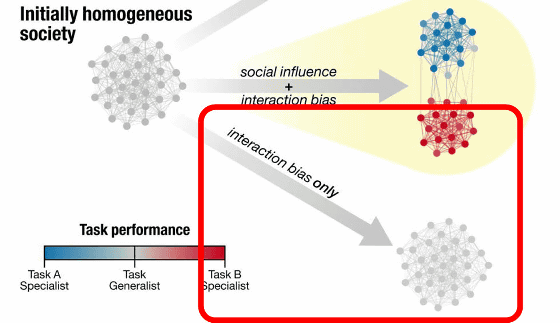
Tokita concludes that the presence of both the influential and the influential surroundings in the group creates a division of labor.
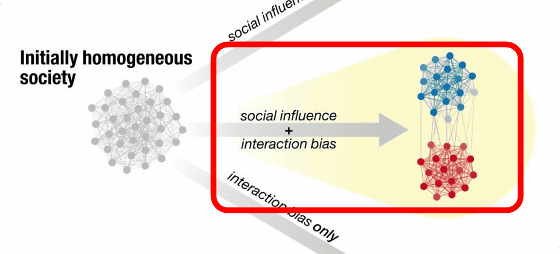
Ali's division of labor is caused by personality differences between individuals, and Mr. Tokita describes the
It turns out that social spiders have different jobs that can be done efficiently depending on their personality-gigazine

By photoholic1
Mr. Tokita said in his research that human sociological concepts could be applied to animal collective behavior, and said, `` I think there are many interesting ideas that can be applied to other fields as well. '' .
Related Posts:
in Creature, Posted by darkhorse_log


